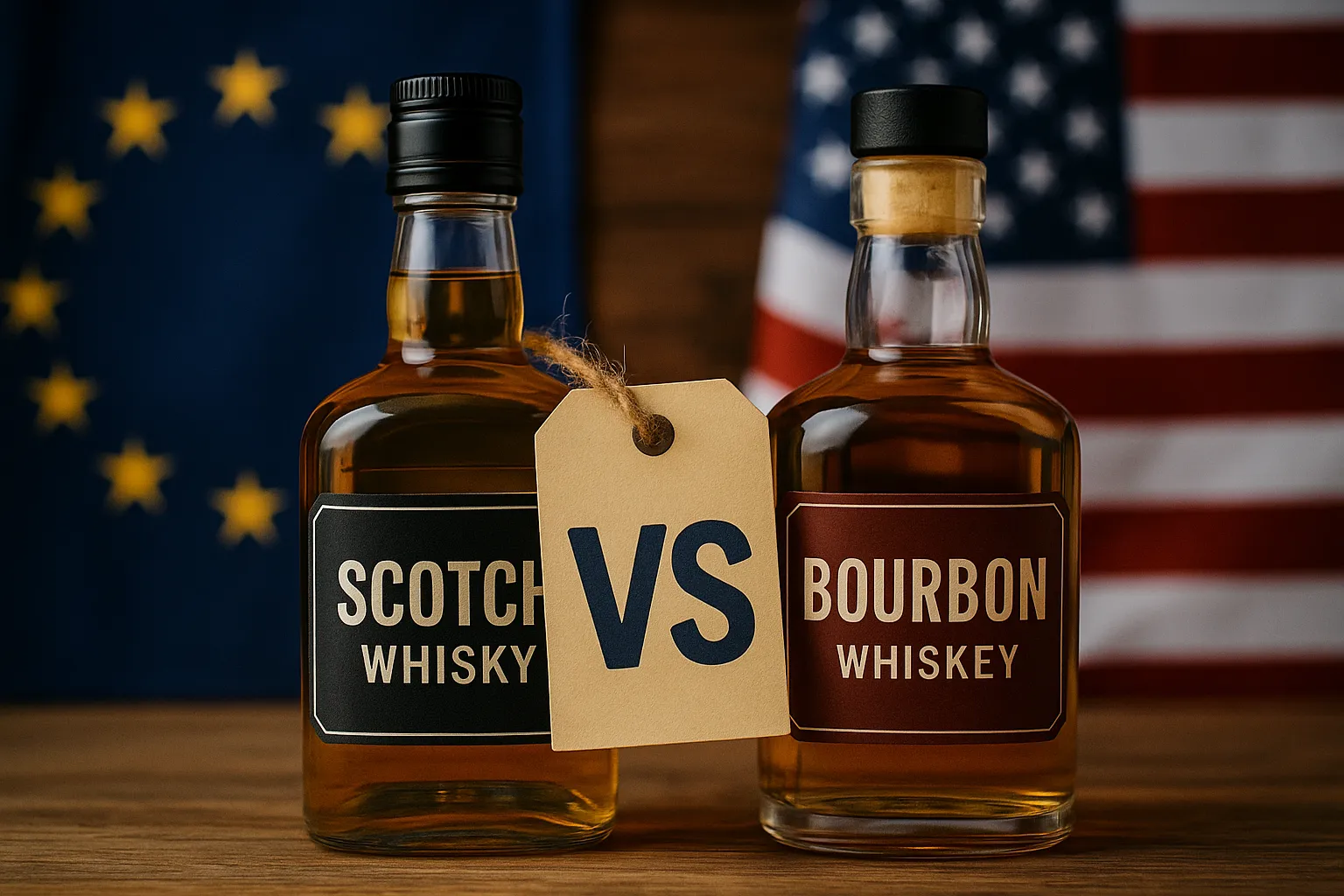Whiskey tariffs have become the unlikely glue binding together two historic rivals: Scotch and Bourbon. Politicians may treat tariffs as tactical tools, but the reality is a bitter drink for distillers on both sides of the Atlantic. What began as Trump’s attempt to weaponize trade policy now risks dismantling centuries of craft and trust. Instead of winners and losers, the whiskey industry finds itself trapped in an uneasy alliance born out of mutual pain.
Context: official narrative of protectionism
The mainstream story is familiar. U.S. tariffs were imposed to defend American producers from “unfair” European advantages, while the EU responded with its own duties. Officials claimed this would protect domestic jobs, shield small distillers, and reassert national sovereignty in trade. In the U.S., leaders spoke of revitalizing Bourbon exports. In Europe, politicians promised Scotch would weather the storm with government support. The public line remained simple: tariffs are patriotic shields.
Oppositional Argument: protectionism destroys both
Yet the whiskey tariffs are not shields — they are blunt hammers smashing the very industries they claim to defend. Scotch and Bourbon producers are deeply interconnected: shared markets, shared supply chains, even shared marketing strategies. By erecting barriers, tariffs inflate costs, slash profits, and strangle growth. U.S. distillers lose European buyers. European distillers face American retaliation. The supposed “defense” looks more like collective self-sabotage.
Analytical Breakdown: economic fallout
Tariffs never exist in a vacuum. When Scotch became entangled in Trump’s trade war, European distributors scaled back investments. U.S. Bourbon, once celebrated across Europe, suddenly became a luxury product priced out of reach. Data shows transatlantic whiskey trade fell by double digits in the first months of tariffs. Small distillers, unlike corporate giants, lacked reserves to absorb losses. Consumers paid more, bars stocked less, and entire regional economies — from Kentucky to the Scottish Highlands — felt the squeeze.
The inflationary impact rippled outward. Barrels, glass bottles, and transport all rose in cost as tariffs disrupted supply lines. Whiskey, once a cultural bridge, turned into collateral in a geopolitical feud.
Human Perspective: workers on the edge
In Kentucky, Bourbon makers who relied on European exports laid off staff. In Scotland, family-run distilleries froze hiring and delayed modernization. Bartenders in Paris and Berlin found shelves empty of American Bourbon, while U.S. bars saw prices of Scotch double. For workers, the whiskey tariffs are not abstract politics — they are lost paychecks, cancelled shifts, and broken careers. A drink meant to connect people became a symbol of political cruelty.
Counterarguments
Pro-tariff advocates insist the whiskey tariffs will foster local pride and revive domestic consumption. But this argument ignores reality. American Bourbon was already thriving domestically; Scotch was already a cultural export powerhouse. Tariffs did not spark innovation — they punished loyal markets. Some argue tariffs are leverage to negotiate fairer deals. Yet every month of delay bleeds small businesses dry while politicians posture.
Conclusion: a bitter toast to failure
Whiskey tariffs show the bankruptcy of protectionist politics. Instead of defending workers, they punish them. Instead of strengthening industries, they weaken them. The forced alliance between Scotch and Bourbon is not a triumph of solidarity but a cry of desperation. Unless leaders dismantle these barriers, one of the world’s most beloved industries risks becoming another casualty of ego-driven trade wars. The next toast may not be to prosperity but to survival.
